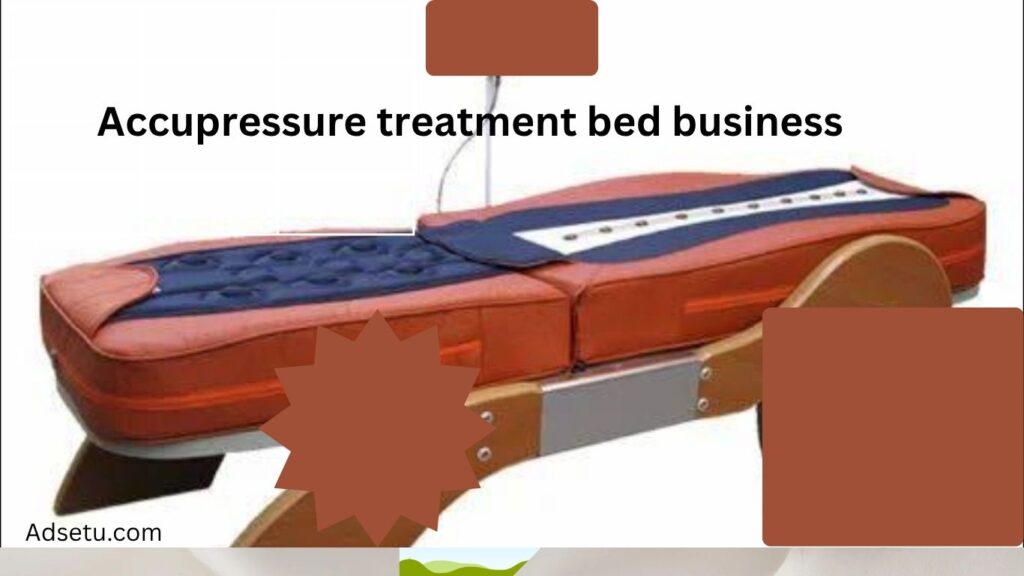Table of Contents
Service industry business of housekeeping and facility management:

Housekeeping: Involves maintaining cleanliness, hygiene, and orderliness in a facility—includes cleaning, laundry, waste disposal, etc.
Facility Management (FM): A broader service that ensures the proper functioning of built environments through maintenance, security, catering, housekeeping, and utilities management.
Who Requires These Services?
- Corporate offices
- IT parks and co-working spaces
- Hospitals and clinics
- Educational institutions
- Hotels and resorts
- Malls and retail stores
- Apartment complexes and gated communities
- Factories and warehouses
- Event venues
Income Potential
- Small operations (e.g., 5–10 staff) can earn ₹1–5 lakh/month.
- Profit margins: Generally 10–30% depending on scale and efficiency.
Water tank cleaning business:
Water tank cleaning is a practical, low-investment, high-demand service that fits well in both residential and commercial facility management sectors.
Water tank cleaning involves the removal of sludge, dirt, algae, bacteria, and other contaminants from overhead and underground water tanks used in homes, apartments, hotels, hospitals, industries, etc.
- It includes:
- Draining the tank
- Manual scrubbing and sludge removal
- High-pressure jet cleaning
- Vacuuming and drying
- UV light or anti-bacterial spray disinfection (optional)
Business Opportunities
- Apartments & gated communities
- Individual houses
- Commercial buildings
- Schools, colleges & hostels
- Hospitals & hotels
- Factories & industries
- Government buildings
Business Potential:
- Recurring business: Most clients need tank cleaning every 3–6 months.
- Low competition in many cities and towns.
- Can scale up easily by expanding teams and tools.
- Upsell other services: Pest control, plumbing, water purifier services, etc.
Required Infrastructure
Skilled cleaning staff (2–5 people to start)
Equipment:
- High-pressure jet machine
- Dewatering pump
- Vacuum cleaner
- Disinfectant sprays
- Safety kits (masks, gloves, boots)
- Ropes, ladders, lighting (for underground tanks)
- Transportation (bike or small van)
- Mobile phone + CRM (optional)
- Marketing materials (flyers, social media, website)
Income Potential
- Per home tank: ₹300–₹1,000+
- Apartment complex: ₹2,000–₹15,000 depending on size
- Hospitals, hotels, industries: ₹10,000–₹50,000+
- Monthly income estimate:
- Small setup: ₹50,000 – ₹2 lakh/month
- Mid-level business: ₹2 – ₹10 lakh/month
- Profit margin: 30%–50% (very efficient at small scale)
Legal Formalities
- Business registration (Proprietorship, LLP, or Pvt Ltd)
- GST registration (if turnover > ₹20L)
- Trade license from municipality
- Employee insurance (if applicable)
- Pollution/sanitation clearance (only in some cities)
- Water tank cleaning SOPs may be needed for govt/commercial contracts
Facade Cleaning Business:

Facade cleaning is the process of cleaning the exterior surfaces of buildings, including glass, ACP (Aluminum Composite Panels), stone, tiles, and concrete. It includes:
- Glass and window cleaning
- Pressure washing of stone or concrete
- Removal of dirt, stains, pollutants, algae
- Height-access cleaning (using ropes, scaffolding, or lifts)
Required Infrastructure
Manpower:
Trained rope-access (IRATA-certified) or scaffolding technicians.
Equipment:
- Water-fed poles
- Pressure washers
- Cleaning chemicals (eco-friendly)
- Rope access gear / Scaffolding / Boom lifts
- Safety harnesses and helmets
- Transport: For team and equipment mobility
- Office/Storage space (for gear and scheduling)
- Insurance: Mandatory for high-risk work
Scope of Business
- High-rises and commercial towers
- Hotels and malls
- Hospitals and schools
- Government buildings
- Residential apartments
- Industrial plants
- Major cities with growing skylines (e.g., Mumbai, Bangalore, Delhi, Hyderabad) are key markets.
Business Potential
- Recurring work: Buildings require facade cleaning every 3–6 months.
- High-ticket contracts: A single high-rise job can earn ₹50K–₹5L depending on size.
- Low competition: Specialized work, not many players.
- B2B focused: Works on contract model, predictable revenue.
- Expansion: Can grow into total FM or rope access services.
Income Potential
- Per job: ₹10,000 to ₹5,00,000 depending on the building size.
- Monthly revenue: ₹1–10 lakh or more based on crew size and contracts.
- Profit margin: 20–40% with efficient operations.
- Annual income: Can exceed ₹50 lakh–1 crore+ for a well-run mid-sized operation.
Risk Factors.
- High-risk work: Working at heights, rope-access – potential for accidents.
- Weather dependency: Rain and wind can delay projects.
- Equipment failure: Ropes, harnesses, or lifts must be regularly checked.
- Skilled labor: Needs trained professionals (IRATA or SPRAT certification).
- Client default: Delayed payments can affect cash flow.
Legal Formalities.
- Company registration (Proprietorship/LLP/Private Ltd.)
- GST registration
- Trade license from the local municipal body
- Insurance:
- Public liability insurance
- Employee/workman compensation insurance (mandatory for high-risk)
- Labour compliance: PF, ESI if employees cross threshold
- Certifications: IRATA (International Rope Access), SPRAT (Society for Rope Access Technicians) for safety
Vehicle washing centre business idea:

Starting a vehicle washing center business can be a profitable venture
Infrastructure Requirements
Location:
- High-traffic area (near residential colonies, commercial centers, fuel stations, highways).
- Minimum 800–2000 sq. ft. depending on the scale.
Basic Setup:
- Covered washing area with proper drainage.
- Water source and storage (overhead tanks, borewell, etc.).
- Electricity connection (single or three-phase for machinery).
- Waiting lounge or reception.
- Office & restroom (optional but professional).
Equipment:
- High-pressure washer
- Water tank & pump
- Vacuum cleaner (wet & dry)
- Air compressor
- Foam sprayer/gun
- Washing chemicals, shampoo, microfiber cloths, etc.
Optional Add-ons:
- Steam cleaners.
- Automatic washing systems.
- Water recycling setup (for eco-friendly model).
- CCTV and security setup.
Expected Income:
- ₹150 – ₹500 per car (basic to premium)
- ₹50 – ₹150 per bike
- Average 15–30 vehicles/day = ₹1.5L – ₹3.5L/month
- Profit margin can be 30%–60% depending on scale & services.
Pest control business:

A pest control business provides services to eliminate or manage unwanted pests such as insects, rodents, termites, and other creatures that may pose health risks, cause damage, or be a nuisance. This service is vital for homes, commercial spaces, agriculture, and industrial properties.
Types of Pest Control
- Residential Pest Control – Homes and apartments (ants, cockroaches, termites, rodents, etc.)
- Commercial Pest Control – Offices, restaurants, hotels, hospitals
- Agricultural Pest Control – Protecting crops from insects, rodents, and diseases
- Industrial Pest Control – Warehouses, factories, storage units
- Termite Control – Specialized treatment for termite infestation
- Rodent Control – Trapping and poisoning rats and mice
- Mosquito Control – Fogging and larvicidal treatment
- Eco-Friendly/Bio Pest Control – Using non-toxic, organic methods
- Fumigation Services – For large-scale pest elimination
Business Potential
- Evergreen service – Pest control is not a trend; it’s a necessity.
- Recurring revenue – AMC (Annual Maintenance Contracts) offer steady income.
- B2C & B2B opportunities – Serve households, housing societies, hotels, warehouses, etc.
- Scalable – Can start small and grow with teams, equipment, and coverage area.
Demand
- Steady and increasing.
- Seasonal spikes: Monsoon (mosquitoes, cockroaches), summer (termites, ants).
- Regulations make it mandatory in some sectors (food, hospitality).
Income
- Average income per job: ₹500 – ₹5000 (residential).
- AMC contracts: ₹10,000 – ₹50,000+ per year for commercial clients.
- Monthly revenue (small setup): ₹50,000 – ₹2,00,000.
- Profits: 30–50% margin depending on scale and operational efficiency
Company Registration
Pest Control License from CIBRC:
- Authority: Central Insecticides Board and Registration Committee (CIBRC), under the Ministry of Agriculture.
- License Type: Insecticide License for Pest Control Operators (PCOs).
- Form to apply: Form VI of the Insecticides Rules, 1971.
- Issued by: State Agriculture Department (Licensing Officer).
- Purpose: To purchase, stock, and use insecticides for commercial purposes.
- Register your business with the local Municipal Corporation under the Shops & Establishment Act.
Trade License
- Issued by local Municipal Corporation or Panchayat
- Needed to operate a business in commercial premises
Pollution NOC (in some states)
- Some states may require an NOC from the State Pollution Control Board due to chemical use
Employee Safety Compliance
- PPE Kits, Training, and adherence to safety norms
- May be checked under local labor or health department laws
FSSAI License (optional but relevant)
- If you plan to serve food processing units, restaurants, or hotels, they may require pest control operators to have an FSSAI vendor license
Additional Considerations
- Insurance: Public liability insurance is a good idea.
- Training Certification: You or staff may need certified training in pest management from an authorized institute (like IPCA or NPMA workshops).
Income
- Average income per job: ₹500 – ₹5000 (residential).
- AMC contracts: ₹10,000 – ₹50,000+ per year for commercial clients.
- Monthly revenue (small setup): ₹50,000 – ₹2,00,000.
- Profits: 30–50% margin depending on scale and operational efficiency.
Motor winding business:

Technical skill as motor winding business which can be a profitable and steady local business if done right:
What is Motor Winding Business?
Technical skill as motor winding involves rewinding or repairing electric motors — replacing or fixing the copper windings (coils) inside motors when they get burnt or damaged. It’s a service-based and technical business.
Commonly serviced motors include:
- Water pump motors (domestic & agricultural)
- Industrial motors
- Fan motors
- Mixer grinders
- AC compressors
Market Potential:
- Households: Ceiling fans, coolers, pumps, mixer grinders.
- Farms: Submersible pumps, borewell motors.
- Factories & workshops: Industrial motors, 3-phase motors.
- Buildings: Lifts, compressors, water motors.
- Government contracts: PWD, irrigation departments, and local water boards.
Income Potential:
Profit margins: 40–60% depending on motor type and customer.
Rental business idea of generator renting:

A Rental business idea of generator renting is provides temporary power solutions by leasing generators to customers for various needs, such as construction sites, events, emergencies, and industrial applications. This business is essential for clients requiring backup power or operating in areas with unreliable electricity.
Business Potential
- Growing Demand: Industries, businesses, and events rely on generators for power security.
- Infrastructure Development: Expanding cities, real estate, and industries increase demand for temporary power.
- Emergency Needs: Power outages, natural disasters, and maintenance shutdowns create consistent rental demand.
- Event Industry: Concerts, weddings, exhibitions, and film shoots often require power rentals.
- Eco-Friendly Options: Growth in demand for hybrid and fuel-efficient generator rentals.
Initial Capital:
Cost of Generators depends upon Capacity.
Infrastructure Needs:
- Generators (various capacities: 5 kVA – 500 kVA or more)
- Storage Space (for generators, fuel, and spare parts)
- Transportation Vehicles (pickup trucks for delivery)
- Maintenance & Repair Tools
Potential Income & Returns
Profit Margins: 30-50% (after fuel, maintenance, and operational expenses)
ROI (Return on Investment):
- Small-scale: 1 – 2 years
Potential Customers
- Construction Companies (temporary power for sites)
- Event Planners (concerts, weddings, exhibitions)
- Manufacturing & Factories (backup power during outages)
- Hospitals & Clinics (emergency power)
- Telecommunication Companies (towers and remote locations)
- Government & Municipal Services (disaster relief, elections, roadwork)
- Agricultural Sector (irrigation pumps, cold storage)
- Film & Media Industry (outdoor shooting locations)
Decoration material rental business:

Decoration material rental business is a smart and cost-effective business idea with low risk and recurring income potential.
Need for Decoration Material Rental Business:
- Frequent Events: India hosts countless weddings, parties, festivals, and corporate functions.
- Cost-Conscious Clients: Many prefer to rent instead of buying expensive decor for one-time use.
- Event Management Boom: Event planners rely heavily on rental suppliers for quick, affordable setups.
- Sustainability: Reusing materials is environmentally friendly and appeals to eco-conscious clients.
Business Opportunities:
- Types of Decoration Items You Can Rent:
- Wedding Decor: Mandap structures, artificial flowers, arches, drapes, lights
- Event Props: Stage backdrops, furniture, selfie booths, themed decor (royal, Bollywood, rustic)
- Festive Decor: Diwali lights, Christmas trees, rangoli sets, Ganpati pandal decor
- Corporate & Birthday Decor: LED signages, balloon arches, banners, stands
- Themed Decor Packages: Baby showers, mehendi, haldi, anniversaries, etc.
- Event planners and decorators
- Individuals hosting private parties or functions
- Schools/colleges for annual days and fests.
Investment Requirements:
Investment: ₹1 – ₹5 lakh
Infrastructure Needed:
- Inventory: Basic wedding/festive props, lighting, furniture
- Storage Space: 500 – 2000 sq. ft. warehouse or godown
- Transport Vehicle: Pickup van or tempo (own or rented)
- Cleaning & Maintenance Area: For washing, repairs, and packaging
- Inventory Management System: Track usage, return, and maintenance
- Staff: 2–10 people for logistics, cleaning, and delivery
Profit Potential:
- Low-cost items (lights, banners): 50%–100% of item cost recovered in 3–5 rentals
- High-end items (mandaps, backdrops): Rent for ₹5,000 – ₹50,000 per event
- Monthly Income Example (Small-Medium Setup):
- Rentals for 20–30 events/month
- Revenue: ₹1.5 – ₹5 lakh
- Net profit: ₹50,000 – ₹2 lakh+.
Bar bending business:

Bar bending business can be a highly profitable and essential service in the construction industry. Bar bending (or rebar bending) involves shaping steel reinforcement bars into required designs for construction projects like buildings, bridges, roads, and industrial structures.
Market Potential:
- Construction contractors
- Real estate developers
- Government civil projects (PWD, NHAI, etc.)
- Infrastructure companies (roads, bridges, dams)
- Residential building projects
- Pre-cast concrete manufacturers
Business Opportunities:
- There are multiple business models within bar bending:
- On-site manual bar bending service: Low investment, labor-based.
- Off-site rebar processing unit: Larger scale, machine-driven production for delivery to sites.
- Tie-ups with construction firms: Long-term contracts for consistent supply.
- Bar cutting and bending with delivery: Offer complete service from raw bar supply to shaped bars.
- Turnkey construction support services: Package services with cutting, bending, fabrication, and transportation.
This business can be started on a standalone basis or in combination with other construction services like shuttering, fabrication, or steel supply.
Investment Required:
- Your investment depends on the scale and technology level:
- Manual On-site Business (₹1–2 Lakhs)
Profit Potential:
- Profit margins in bar bending depend on volume, labor efficiency, and client type:
- Per ton processing charges: ₹2,000 to ₹4,000 per metric ton, depending on complexity and size.
- Monthly volumes for small setups: 30–100 tons.
- Net profit margins can range from 15% to 30% after deducting material, labor, and overheads.
A small unit doing 50 tons/month at ₹3,000/ton could generate ₹1.5 lakhs in revenue and ₹30,000–₹50,000 in monthly profit after expenses.
Acupressure treatment bed business:

Acupressure treatment bed business can be a promising venture, especially given the increasing interest in alternative healthcare and wellness therapies.
Need for Acupressure Therapy :
- Acupressure is a form of traditional Chinese medicine that involves applying pressure to specific points on the body to relieve pain and promote overall wellness.
- Rising lifestyle-related diseases like back pain, obesity, diabetes, and stress.
- A desire for non-invasive and drug-free treatments.
- Increasing elderly population who prefer natural healing methods.
- Rising healthcare costs pushing people to seek affordable wellness options.
Investment Required:
- Initial investment depends on the scale of your operations. Here’s a rough breakdown:
- Basic setup (1 bed, low-rent area): ₹1.5 to ₹3 lakhs
- Standard setup (2–3 beds, branding, reception, trained staff): ₹5 to ₹8 lakhs
- Premium setup (5+ beds, high-footfall area, spa-like ambiance): ₹10 to ₹15 lakhs
- Certification or registration under AYUSH/healthcare services (if necessary)
Charges for Acupressure Bed Treatment:
- Charges typically depend on the location, type of center, and additional services offered:
- Single session (20–30 minutes): ₹200 to ₹500
- Monthly packages: ₹3,000 to ₹7,000
- Premium centers or wellness spas: ₹600 to ₹1,000 per session
Business Opportunities:
- Standalone wellness center offering acupressure and related therapies.
- Franchise model with established brands (lower risk, faster start).
- Mobile or home-visit services with portable beds for urban customers.
- Corporate tie-ups for employee wellness programs.
- Integration in existing setups like gyms, yoga studios, naturopathy centers, or spas.
- Government wellness programs in rural areas.